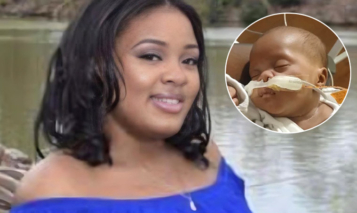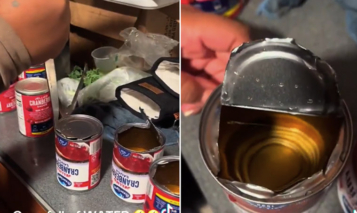
A sick passenger was airlifted to a hospital from the stranded Grand Princess cruise ship anchored off the coast of California. The Coronavirus-stricken ship is carrying 3,500 passengers and crew. Most of the passengers are retirees in their 60s and 70s.
The “critically-ill” passenger was airlifted from the ship at 7:15 a.m. Saturday, the ship’s captain announced.
“We have a guest who requires medical assistance at the moment, the Coast Guard has been called and the possible airlift of that guest may be possible tonight,” the caption said Friday in a video clip obtained by KCRA.

All passengers have been asked to remain in their cabins. Menus are delivered to the cabins several times a day for passengers to place orders from room service.
“The ship will not come on shore until we appropriately assess the passengers,” said California Gov. Gavin Newsom.
The CDC confirmed 400 cases of Coronavirus in the United States. The death toll stands at 19 — which pales in comparison to 20,000 deaths caused by influenza. Most of the Coronavirus deaths are people over age 70.

19 crew members and 2 passengers were found to have the Coronavirus in the initial round of testing. Only 46 people have been tested on the ship, Vice President Mike Pence announced during a press conference on Friday.
Pence said arrangements are being made to allow the ship to dock and all 3,500 passengers and crew will be tested before leaving the ship.
Those most at risk for the Coronavirus are Asians, the elderly (over age 60) with chronic illnesses (heart and respiratory conditions such as COPD) and anyone with a weak immune system (such as HIV-infected people).
Among the elderly with chronic illnesses, the virus causes severe acute respiratory syndrome (SARS) and potentially fatal pneumonia.
No child has died from Coronavirus anywhere in the world. Black people of African descent do not appear to be affected by the Coronavirus.
Infected people younger than 60 experience mild symptoms of cough and fever (below 101.5). Those who experience shortness of breath with fever over 101.5 should contact your doctor or go to the nearest emergency room.
If you have mild flu-like symptoms, the CDC requests you self-quarantine at home, wash your hands frequently or use hand sanitizer. Drink plenty of fluids and eat a well-balanced diet. Infected people are contagious for up to 2 weeks before showing symptoms.





